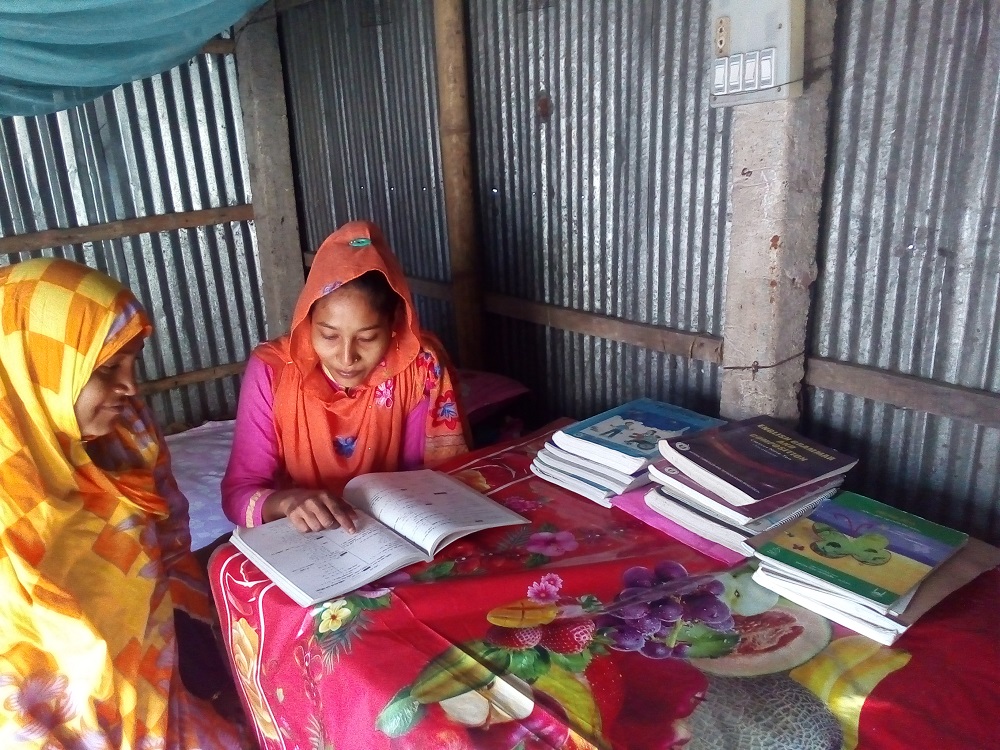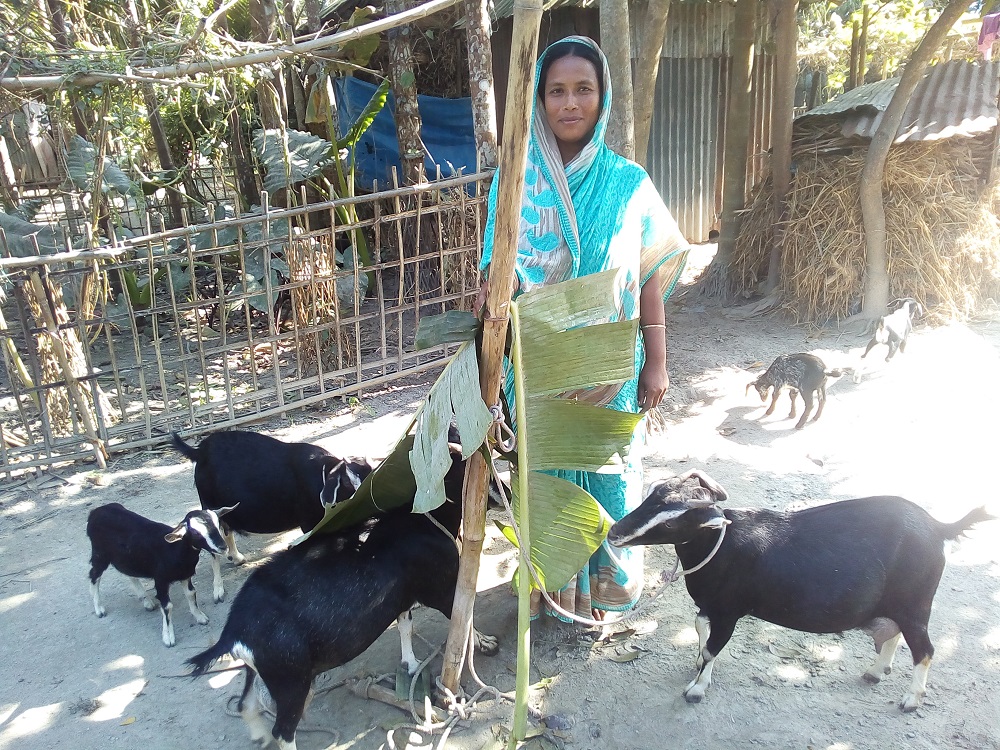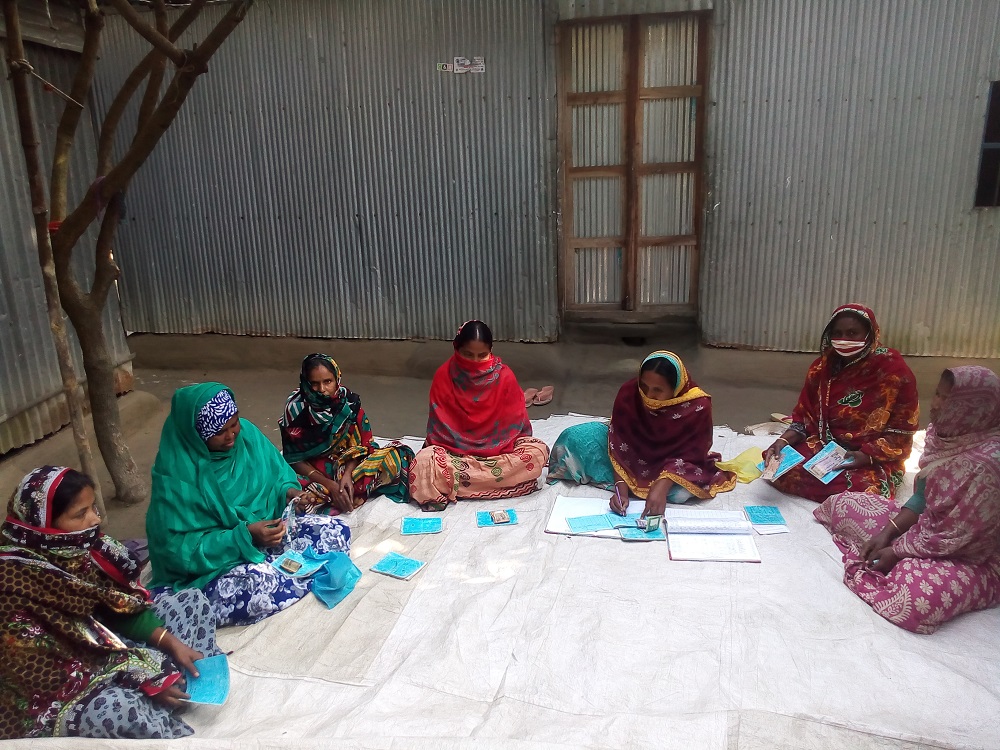Widowed women and orphaned children in Bangladesh are breaking out of the poverty trap through a pioneering Islamic Relief programme.
Helping widows and orphans thrive
Life for many vulnerable widows in Bangladesh is difficult. Many have no income and struggle to provide for their children, who are often unable to go to school. This limits their life chances and ability to build a future free from poverty.
Islamic Relief is determined that everyone should be able to achieve their full potential, and we are supporting widows and orphans to do exactly that.
Our Alternative Orphan Family Sponsorship Programme through Sustainable Livelihood (ALO) works in Kaunia Upazila in Rangpur district, serving 500 widows and their children. It provides children with support for their education, while also enabling their mothers to earn a reliable living.
Able to attend school, the children are flourishing in their educational attainment and personal and physical development. Meanwhile their mothers are using the grant and training provided by Islamic Relief to carve out successful small enterprises including growing crops, rearing animals, and tailoring.

Inspiring women and changing lives for the better
When Rina’s husband passed away, she struggled to make ends meet. But then our ALO programme helped her to invest in a number of initiatives including cow and poultry-rearing, cap-making and tailoring.
Hard-working Rina has never looked back.
She now has a cow and a calf which provide 17 litres of milk a day, which Rina sells at a competitive price. She also manages a team of 15 other women who stitch caps which are exported to the Middle East. Rina also works as a tailor, sewing women and children’s clothes. Her income is now over BDT 22,000 (about £197) a month.
Mina, from a nearby village, also faced dire poverty when her husband passed away. Now she rears animals. Her cow and 7 goats provide her with milk which she sells for a good profit. She also has a rice field, and this year expects to harvest 280kg of rice. Mina also maintains a vegetable garden and poultry which provides her family with a healthy and nutritious diet.
“Orphans and widows are the most neglected segment of the society,” says Mohammed Mizanur Rahman Mithu, Secretary of the Kaunia Press Club. He was one of a number of Bangladeshi journalists to recently visit the ALO project, where they met Rina and Mina.
“Nobody looks after them and they are ignored by society. But in the ALO project, the scenario is different. They have changed remarkably in relation to income as well as voice raising. Now they are respected by their neighbours.”

Working together, boosting women’s inclusion
The woman have become more self-reliant and knowledgeable about their own rights and how to claim them. Their enterprises mean they can engage with institutions including banks, hospitals and social welfare departments. Local authorities are now listening to their needs, which are articulated through the Kaunia Self-Sustained Women Cooperative.
Formed by the women, the cooperative improves women’s inclusion and decision-making in their families and communities. Members contribute a small amount of money to a collective fund which is allocated towards a particular issue in the community. The fund can be awarded to a member of the group facing particularly difficult challenges.
Women contribute as much as they can to the fund each month – some save a handful of rice from their monthly groceries, which they sell in order to participate. They also receive training on self-employment, new income generation activities, and health and hygiene issues.

Helping generations break cycles of poverty
Every woman involved with the programme has used their grants to develop a livelihood upon which they can rely, and are re-investing their profits to generate more income. Through the programme, which won the Bond Innovation Award in 2019, families bring home almost four times what they used to earn and have improved their living standards.
Nutritious food, new clothes, and healthcare are no longer out of reach, and personal hygiene practices have improved too – especially in light of Covid-19 and social distancing practices.
With their children thriving at school and set for brighter futures, families are escaping poverty, permanently, and local governments are replicating the ALO model elsewhere in Bangladesh.
Support our vital work to help vulnerable orphans and widows across the globe: donate now.










